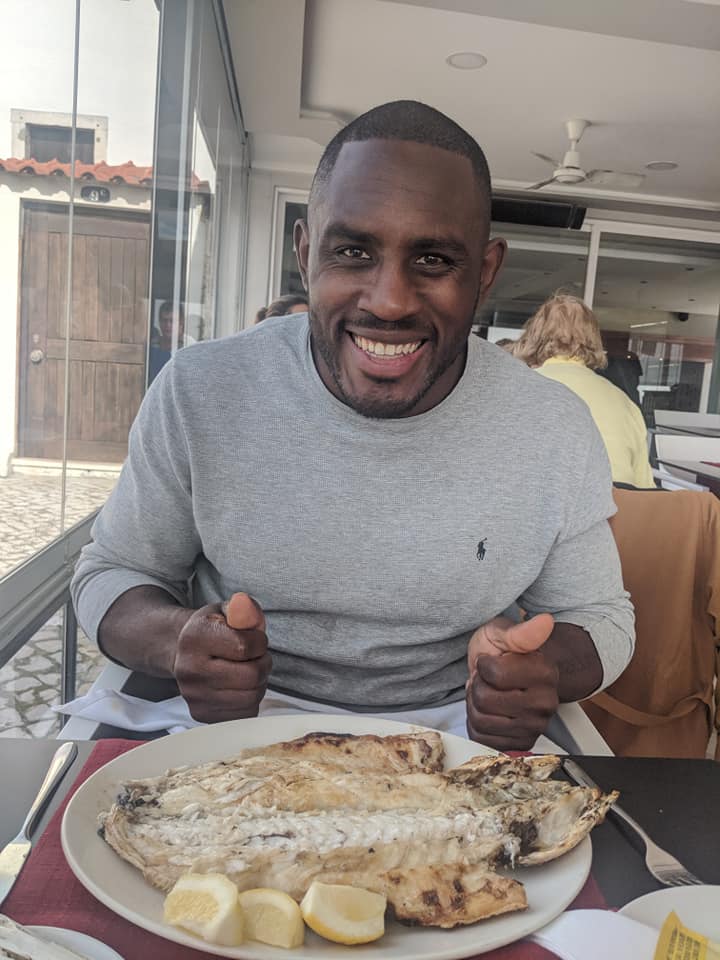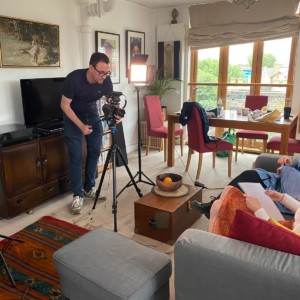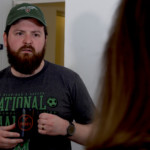I discovered Edward Latimore the way most people do, through Twitter. His ability to offer actionable advice and insight in only 280 characters is second to none.
What makes Ed unique is how he draws insights from so many different experiences — from his career as a professional boxer, from his travels, from living around and knowing crack addicts, and from his obsession with black coffee.
You won’t agree with everything Ed says, which is exactly what makes his writing so valuable. It’s thought-provoking. It wakes you up.
Usually – I interview people in the film world. But Ed’s skills as an author, blogger, and all round motivator made me want to lift the hood on his process, to see what the rest of us can extract from it.
You are an incredibly productive writer and entrepreneur – how do you consistently come up with ideas?
I only write about what I’ve experienced and can give a personal interpretation and perspective on. It just so happens that I’ve lived through many things, have had many experiences, and have learned many lessons from those experiences. That’s a big part of it.
I also spend a lot of time thinking and reflecting. Lastly, I’m still living my life. I find that many content creators run out of things to say because they stop challenging themselves in life. Even if they continue challenging themselves, they don’t realize that the key to standing out is to put a personal stamp on it.
If I can take your content and copy it word-for-word without having the life details to back it up, you’re as unique as a wikipedia entry. This isn’t a bad thing, but you won’t be able to consistently create new ideas because new things aren’t happening to you. Your writing will reflect that.
When an idea comes – how do you know if it’s an article, or a book, or simply just a tweet?
I mostly tweet my intellectual reflections. If I find myself tweeting about a topic often then I figure it’s got some merit as a blog post. I think that because it means that I’ve got a lot to say because I’ve probably got some experience with it. For my books, I just write what’s important to me that I have even more say about and teach.
I’m fortunate that my natural interests align with my business goals. Therefore, I never really have to struggle to come up with profitable ideas. I just live my life, state my observations and thoughts (which are derived from experience), and people seem to respond regardless of the medium.
We live in such polarised times, with people seeing issues as black and white. You offer more nuanced ideas. For example, I don’t think I could pinpoint your politics. It feels brave in this day and age to be an independent thinker. What are the challenges of being this way?
Extremists on either side of an issue will attack you when your ideas and views run counter to theirs. I have no allies on the left or right because I’m only interested in what makes sense. Sometimes what makes sense aligns with one side. When this happens, that side becomes my ally and the opposing side becomes my enemy. Other times, it’s vice-versa.
Commitment to clear thinking means seeing through the fog of partisanship. When you’re loyal to the truth of the matter, your only allies are the numbers. Sometimes they contradict one group’s perception. Other times they support it.
The only thing I can do is what makes me happy and content, and that is never blindly committing to a position.
Do you ever fear being ‘cancelled’?
Hahaha, not really. I don’t tread on any of the cancel topics. Even if I did, I’ve done a very smart job of building loyalty. One day, someone will dig up something or misinterpret me. It doesn’t matter to me though. I don’t play by the mainstream rule so I’m not subject to mainstream penalties. If anything, attempting to cancel me will probably just make me more money.
Now more than ever, it’s possible to build up your own audience; through social media, mailing lists, etc. But I think many people still see themselves as waiting for some ‘big break’. I personally feel the most powerful thing you can do is build your own following, that only you have access to. A ‘big’ opportunity from an organisation is not the amazing thing it was maybe 20 years ago. Do you agree?
If a person is willing to put the effort in to build up their personal brand, they have an amazing opportunity. The internet has removed the gatekeepers to mass distribution. Between websites, youtube, and social media, you can get your own fans and customers–without waiting for someone to “make you famous” or “give you a big break”.
If you want to be a writer, you can now build a website and self-publish books. If you want to be an entertainer, you can make your own podcast or youtube channel. And the platforms themselves make it relatively easy to profit via advertisements. Even if your content is too edgy to go that route, sites like Patreon make it easy for people to support you via your work.
If that work is good enough, you will build a profitable audience. The type of audience that before was impossible to build without someone giving you a television, radio, or publishing platform.
Do you write every day?
In some form or another. I make my entire living off of the written word, in one way or another. It’s important to tweet, work on blog posts, write something for my newsletter, etc. The only way to become better at writing is to write.
There’s a quote on your website, “Less than 10% will attempt to make it a reality. Of those, only 10% will see a project through to the point where it brings a return on the investment of time/money,” I think that’s very applicable to the industry I’m in. People talk ideas, but have a hard time completing them. People will talk about a lack of funding, or it not being the right time, but what is really going on?
It’s a lot easier to talk about what you’re going to do instead of actually doing it. No one gets paid for ideas alone. They have to apply them and create something. I think a lot of people want to be known as something (in your case, a filmmaker) but they aren’t willing to take the risks and put the work in to achieve that goal.
Anything worth achieving comes with risk. I think that many people see that risk and they begin to avoid it. The easiest way to do so is to simply not try. The second easiest way is to let excuses get in the way. I believe that these are the reasons that people don’t follow through.
Lastly — What’s your favourite movie?
Man on Fire. It’s a very emotional movie but with a reasonable plot. It’s easy to root for and identify with the protagonist. I love action movies but also protagonists with whom you can emotionally root for and resonate with.
To learn more about Ed and to sign up for his newsletter, visit www.edlatimore.com.
Follow him on Twitter @EdLatimore.
















